 OpenTools
VS
OpenTools
VS
 LLM API
LLM API
OpenTools
OpenTools offers a specialized API designed to augment Large Language Models (LLMs) with external tool capabilities. By utilizing this single API, developers can access an open ecosystem of MCP (Machine Communication Protocol) tools, granting LLMs functionalities such as web search, real-time location data retrieval, and web scraping without needing individual API keys for each service.
The platform emphasizes seamless integration and flexibility, supporting various LLMs and ensuring applications remain resilient against outages. Its API is engineered to be OpenAI-compatible and supports traditional function calling methods. OpenTools simplifies the financial aspect by charging only for tool execution with tokens priced at-cost, consolidating all charges into one unified billing portal, thus eliminating the need to manage multiple LLM and external service accounts separately.
LLM API
LLM API enables users to access a vast selection of over 200 advanced AI models—including models from OpenAI, Anthropic, Google, Meta, xAI, and more—via a single, unified API endpoint. This service is designed for developers and enterprises seeking streamlined integration of multiple AI capabilities without the complexity of handling separate APIs for each provider.
With compatibility for any OpenAI SDK and consistent response formats, LLM API boosts productivity by simplifying the development process. The infrastructure is scalable from prototypes to production environments, with usage-based billing for cost efficiency and 24/7 support for operational reliability. This makes LLM API a versatile solution for organizations aiming to leverage state-of-the-art language, vision, and speech models at scale.
Pricing
OpenTools Pricing
OpenTools offers Usage Based pricing .
LLM API Pricing
LLM API offers Usage Based pricing .
Features
OpenTools
- Unified API: Access a wide range of MCP tools with a single API integration.
- Multi-LLM Support: Seamlessly switch between different Large Language Models.
- OpenAI Compatibility: API designed for compatibility with OpenAI standards and function calling.
- MCP Registry Access: Browse and utilize a registry of supported MCP servers.
- Transparent Pricing: Pay only for tool execution with at-cost token charges.
- Unified Billing: Consolidates all LLM and tool usage costs into one portal.
LLM API
- Multi-Provider Access: Connect to 200+ AI models from leading providers through one API
- OpenAI SDK Compatibility: Easily integrates in any language as a drop-in replacement for OpenAI APIs
- Infinite Scalability: Flexible infrastructure supporting usage from prototype to enterprise-scale applications
- Unified Response Formats: Simplifies integration with consistent API responses across all models
- Usage-Based Billing: Only pay for the AI resources you consume
- 24/7 Support: Continuous assistance ensures platform reliability
Use Cases
OpenTools Use Cases
- Integrating external tools like web search into LLM applications.
- Augmenting chatbot capabilities with real-time data access.
- Developing complex AI agents that interact with external services.
- Simplifying API management for AI applications using multiple tools.
- Building resilient AI applications capable of using different LLMs.
LLM API Use Cases
- Deploying generative AI chatbots across various business platforms
- Integrating language translation, summarization, and text analysis into applications
- Accessing vision and speech recognition models for transcription and multimedia analysis
- Building educational or research tools leveraging multiple AI models
- Testing and benchmarking different foundation models without individual integrations
FAQs
OpenTools FAQs
-
What is MCP?
The provided text mentions MCP (Machine Communication Protocol) as the standard for the tools accessible via the OpenTools API, but doesn't define it further. It refers to an ecosystem of MCP servers. -
What tools can I use with this API?
You can use tools from the OpenTools registry of MCP servers, which include capabilities like web search, real-time location data, and web scraping. -
Can I add my MCP server to be one your API supports?
The provided text does not explicitly state whether users can add their own MCP servers, but it implies an open ecosystem.
LLM API FAQs
-
How is pricing calculated?
Pricing is calculated based on actual usage of API resources for the AI models accessed through LLM API. -
What payment methods do you support?
Support for payment methods is detailed during account setup; users can select from standard payment options. -
How can I get support?
Support is available 24/7 via the LLM API platform, ensuring users can resolve technical or billing issues at any time. -
How is usage billed on LLM API?
Usage is billed according to the consumption of AI model calls, allowing users to pay only for what they utilize.
Uptime Monitor
Uptime Monitor
Average Uptime
0%
Average Response Time
0 ms
Last 30 Days
Uptime Monitor
Average Uptime
99.86%
Average Response Time
230.63 ms
Last 30 Days
OpenTools
LLM API
More Comparisons:
-
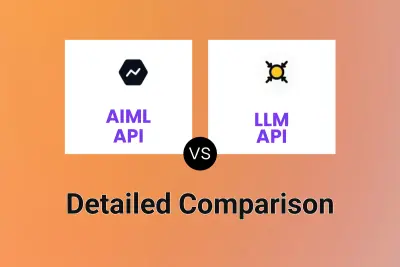
AIML API vs LLM API Detailed comparison features, price
ComparisonView details → -
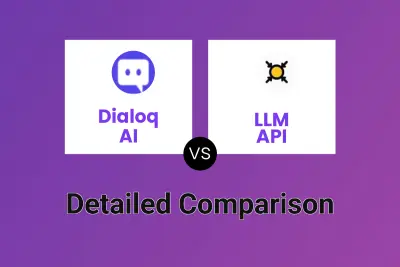
Dialoq AI vs LLM API Detailed comparison features, price
ComparisonView details → -

docs.litellm.ai vs LLM API Detailed comparison features, price
ComparisonView details → -
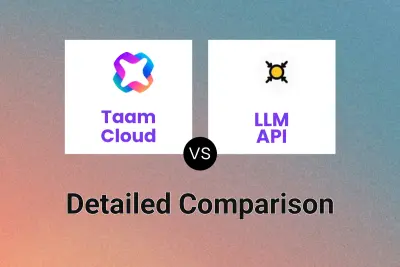
Taam Cloud vs LLM API Detailed comparison features, price
ComparisonView details → -
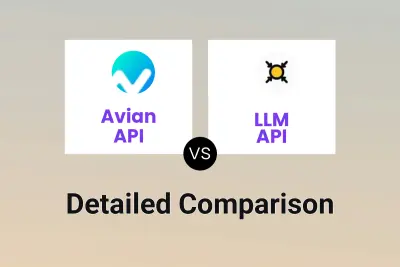
Avian API vs LLM API Detailed comparison features, price
ComparisonView details → -
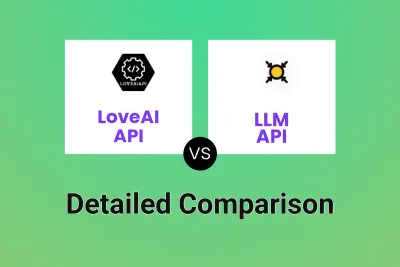
LoveAI API vs LLM API Detailed comparison features, price
ComparisonView details → -

LLM Price Check vs LLM API Detailed comparison features, price
ComparisonView details → -
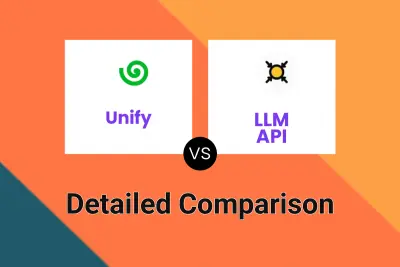
Unify vs LLM API Detailed comparison features, price
ComparisonView details →
Didn't find tool you were looking for?